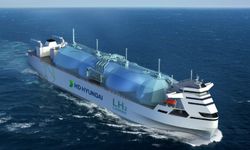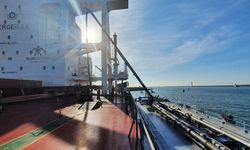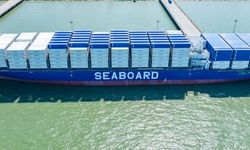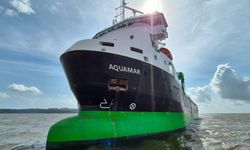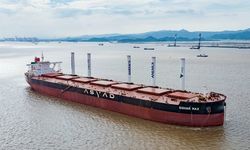"Aviation and international shipping are major contributors to greenhouse gas emissions, and finding cleaner alternatives is crucial," Gallucci said in her article.
Various hydrogen-based fuels, including e-methanol, ammonia, and e-kerosene, are seen as essential for decarbonizing long-distance flights and freight transportation. While batteries are suitable for smaller vehicles, they are not practical for the massive energy requirements of airplanes and cargo ships. Biofuels from crops and waste are an option, but there are concerns about meeting future demand with this approach.
Hydrogen-based fuels offer higher energy density than batteries or pure hydrogen, and their production relies on virtually unlimited ingredients. The article emphasizes the need to build a sustainable supply infrastructure for these fuels, as they are considered the only long-term and scalable solution for the aviation and shipping sectors.
Currently, only a few cargo ships and no commercial jets use e-fuels, but there is a growing global investment in developing engines, fuel systems, and safety protocols to support the transition to cleaner-burning transportation fuels. The challenge lies in ensuring the availability of these fuels in sufficient quantities when the transportation infrastructure is ready for them.
To produce e-fuels, clean hydrogen must be generated using electrolyzers, which split water molecules into hydrogen and oxygen. However, most of the world's hydrogen is currently produced from fossil gas, necessitating a significant expansion of renewable energy and electrolyzer capacity to replace dirty hydrogen and meet the increasing demand.
The International Energy Agency (IEA) estimates that achieving a 10 percent share of e-fuels in aviation and shipping by 2030 would require an additional 2,100 terawatt-hours per year of renewable electricity. This ambitious goal would demand the construction of 400 gigawatts of total electrolyzer capacity by 2030, highlighting the urgency to start investing in these projects.
The article raises concerns that without timely investments in e-fuel projects, the aviation and shipping sectors may struggle to secure enough clean hydrogen to meet global targets for reducing greenhouse gas emissions. The fear is that the limited hydrogen supply might be diverted to other sectors, leaving heavy transportation sectors without a viable decarbonization solution, which could hinder progress toward a carbon-neutral world by 2050.


